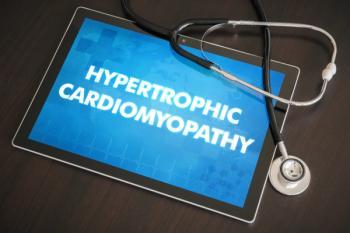
COX-2 inhibitor demonstrates lower incidence of adverse cardiorenal events compared with nonselective NSAIDs
A meta-analysis of data from randomized, parallel-designed, placebo-controlled studies involving >44,000 patients demonstrated that those who had taken the cycloxygenase-2 (COX-2) inhibitor celecoxib (50–800 mg TDD) had a lower incidence of adverse cardiorenal events including hypertension, edema, or congestive heart failure than those taking nonselective non-steroidal anti-inflammatory drugs (NSAIDs), according to an oral and poster presentation at the 21st annual scientific meeting of the American Society of Hypertension (ASH) in New York, NY.
A meta-analysis of data from randomized, parallel-designed, placebo-controlled studies involving >44,000 patients demonstrated that those who had taken the cycloxygenase-2 (COX-2) inhibitor celecoxib (50–800 mg TDD) had a lower incidence of adverse cardiorenal events including hypertension, edema, or congestive heart failure than those taking nonselective non-steroidal anti-inflammatory drugs (NSAIDs), according to an oral and poster presentation at the 21st annual scientific meeting of the American Society of Hypertension (ASH) in New York, NY.
At baseline, the majority of patients in the placebo, celecoxib, and NSAID groups were female and received treatment for the indication of osteoarthritis/rheumatoid arthritis. Thirty-one percent of patients in studies comparing celecoxib and placebo received treatment for ≥12 weeks, 3% received treatment for ≥24 weeks, 3% received treatment for ≥36 weeks, and 2% received treatment for ≥52 weeks. Fifty-five percent of patients in studies comparing celecoxib and NSAIDs were treated for ≥12 weeks, 15% received treatment for ≥24 weeks, 12% received treatment for ≥36 weeks, and 4% received treatment for ≥52 weeks.
"While a relatively high number of patient-years of treatment exposure were accumulated, much of exposure in individual trials was of relatively short duration," the authors stated in their presentation at ASH's meeting (May 2006). "Thus, exposure duration in any individual may not have been sufficient, on average, to permit development of adverse outcomes."
Sufficient data to compare rates of adverse cardiorenal events among the NSAID group and the placebo group were not available.
SOURCES White WB, Simon LS, MacDonald TM, et al. Effects of celecoxib on cardiorenal adverse events: meta-analysis of 41 clinical trials in over 44,000 patients. Presented at: the 21st annual scientific meeting of the American Society of Hypertension; May 16–20; New York, NY. Abstract MP-54.
Newsletter
Get the latest industry news, event updates, and more from Managed healthcare Executive.

























